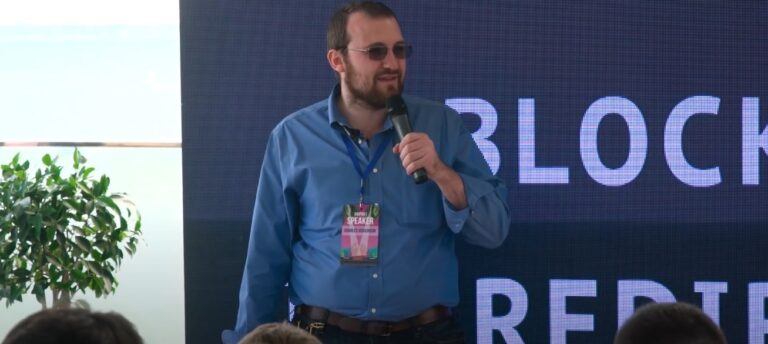On Tuesday (May 3), Maria Bartiromo, the anchor of “Mornings with Maria” on American cable TV channel Fox Business Network (FBN), interviewed Charles Hoskinson, a co-founder of both Ethereum and Cardano, to find out how Cardano solves real-world problems.
Hoskinson, who is the co-founder and CEO of IO Global (aka “IOG”, formerly known as “IOHK”), the company responsible for Cardano ($ADA) research and development, replied:
“I’ve been in the space since 2011 and back in that those days, nobody cared about cryptocurrency. We were a very small club. We all kind of knew each other… Back in those days, we were just trying to solve the problem of email for money. We just wanted to be able to send value to people easily and without counterparty risk. And then what happened is people said ‘well, that’s a great idea, but we want programmability’…
“In 2013, I helped co-found Ethereum, and there we had smart contracts, and since suddenly we could do crowd sales and we could do NFTs and DEXes and all these things that you see today that are very exciting, but the problem with those technologies is they don’t really scale.
“When you start adding lots of users and you want to have a truly global system with millions — eventually billions — and solve real financial problems — whether it be microfinance in Africa or remittances in El Salvador or it be global trade or ESG compliance, these types of things, you simply don’t have the technology to do that at the scale of millions to billions of people.
“What I did in 2015 is I took a step back and I said, ‘all right, let’s start a company and do first principles research’. So we opened up labs everywhere… And we wrote 135 papers — mostly peer reviewed — and we kind of built out the scientific backend, the scientific layer at the industry. And then we took those papers and transformed them into high assurance code the, same type of code used for jets and for rockets… and we created a protocol called Cardano and launched in 2017.
“It’s been up since then. And we now have three and a half million users all across the world from Ethiopia and Burundi and Kenya all the way to the United States.“
Bartiromo the interjected to say “what an incredible success story”, and then proceeded to ask what areas blockchain technology could help the most.
Hoskinson said:
“Anywhere where you have a consortium of actors who have to work together who don’t necessarily trust each other, but need to work together for the market to form is where blockchain is best at. It could be a voting system and you ask who counts the votes; it can be a supply chain system and you say who audits that to make sure it’s ESG-compliant or whatever your goal happens to be. It could be a medical record system…
“So, these are simple problems to state, but in collection because of globalization or because of lack of trust, they’re hard to solve. And usually we solve them by having a central institution, some bank or some body, and say, ‘okay, they’re in charge’. But by being in charge, they have enormous influence. We saw this with social media. For example, they control speech in certain cases. So what you can do with blockchain is remove that central party and then basically have a common logic and they all can work in a decentralized way instead.
“And that’s what our industry has been slowly doing. And we started in finance; that was kind of the first application. And now we’re looking at everything — healthcare, communications, telecommunications, all these different marketplaces.“
Disclaimer
The views and opinions expressed by the author, or any people mentioned in this article, are for informational purposes only, and they do not constitute financial, investment, or other advice. Investing in or trading cryptoassets comes with a risk of financial loss.









